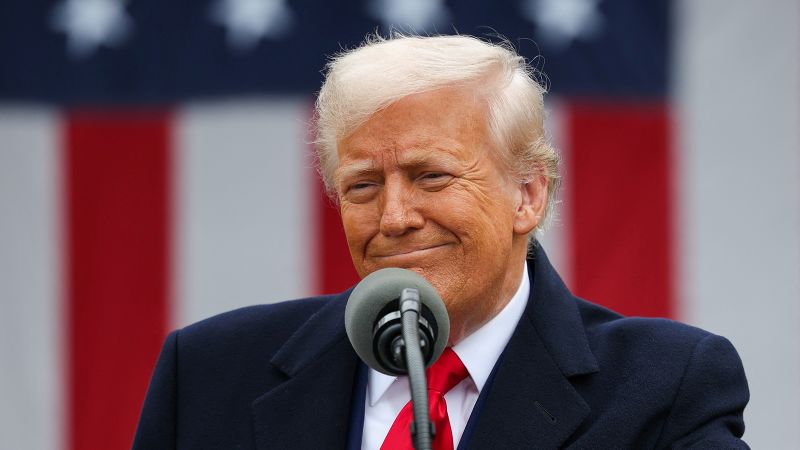
Trump’s ‘reciprocal’ tariffs aren’t quite what they seem. Here’s the real story
CNN
The massive tariffs that President Donald Trump announced for dozens of trading partners Wednesday were pitched as “reciprocal,” simply aiming to match the tariffs other countries charge the United States.
The massive tariffs that President Donald Trump announced for dozens of trading partners Wednesday were pitched as “reciprocal,” simply aiming to match the tariffs other countries charge the United States. But the methodology behind Trump’s attempt to rebalance trade has nothing to do with the tariff rate that foreign countries impose on the US. The Trump administration instead a grossly oversimplified calculation that it said factored in a broad set of issues such as Chinese investment, alleged currency manipulation and other countries’ regulations. The administration’s calculation divided a country’s trade deficit with the US by its exports into the country times 1/2. That’s it. The president is essentially taking a sledgehammer to address a litany of grievances, using the trade deficit that other countries have with the US as a scapegoat. And the vague calculation could have broad implications for countries America depends on for goods — and the foreign companies that supply them. “There does not appear to have been any tariffs used in the calculation of the rate,” said Mike O’Rourke, chief marketing strategist at Jones Trading, in a note to investors Wednesday. “The Trump administration is specifically targeting nations with large trade surpluses with the United States relative to their exports to the United States.” The actual figures are probably closer to the “average Most-Favored-Nation (MFN) applied tariff rate,” which is essentially a ceiling of import taxes that more than 160 nations of the World Trade Organization have agreed to charge each other, though they can vary by sector. And for countries with trade agreements in place, there could be lower or no tariffs at all.

President Donald Trump’s recent attacks on Federal Reserve Chair Jerome Powell caused alarm among some of his top advisers, who warned him that any attempt to remove the head of the central bank could cause as much market turmoil as his ongoing trade war, according to people familiar with the conversations.

 Run 3 Space | Play Space Running Game
Run 3 Space | Play Space Running Game Traffic Jam 3D | Online Racing Game
Traffic Jam 3D | Online Racing Game Duck Hunt | Play Old Classic Game
Duck Hunt | Play Old Classic Game










